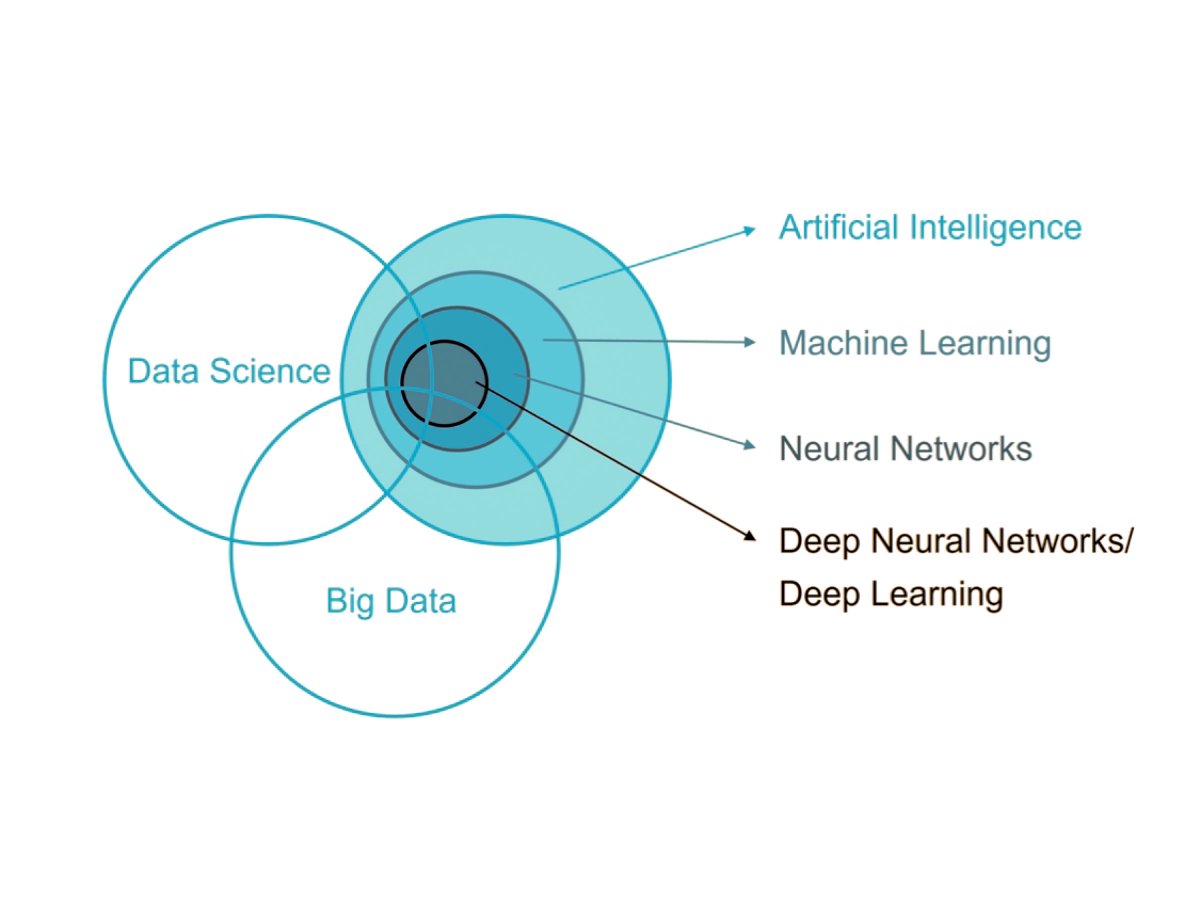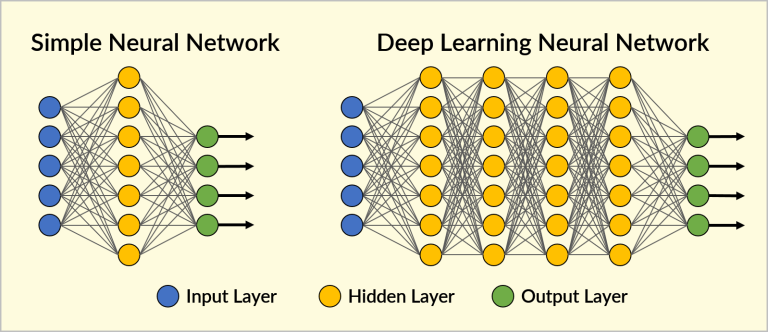Connecting the Dots
In the rapidly evolving world of technology, terms like Data Science, Big Data, Deep Learning, Machine Learning, and Artificial Intelligence are frequently mentioned. While these concepts are interconnected, each plays a distinct role in the broader landscape of digital transformation. In this post, we’ll explore how these disciplines relate to one another, forming the foundation of modern technological advancements.
Data Science: The Starting Point
Data Science is the multidisciplinary field that serves as the starting point for many data-driven technologies. It involves extracting insights and knowledge from data using techniques from statistics, computer science, and domain-specific expertise. Data Science encompasses everything from data collection and cleaning to analysis and interpretation, making it the backbone of many technological innovations.
Data Science is all about asking the right questions, exploring data, and using analytical methods to find answers. Whether you’re predicting customer behavior, optimising supply chains, or uncovering hidden patterns in data, Data Science provides the tools and methodologies to turn raw data into actionable insights.
Big Data: Fueling the Data Science Engine
Big Data refers to the vast volumes of data generated every second from various sources, such as social media, IoT devices, and transactional systems. The sheer scale, speed, and variety of Big Data make it both a challenge and an opportunity for businesses.
Big Data provides the raw material for Data Science. The massive datasets enable data scientists to discover trends, build predictive models, and gain insights that would be impossible with smaller datasets. However, managing and processing Big Data requires sophisticated tools and infrastructure, which is where cloud platforms like AWS come into play.
Machine Learning: Making Data Actionable
Machine Learning (ML) is a subset of Data Science that focuses on developing algorithms that enable computers to learn from data and make predictions or decisions without being explicitly programmed. In essence, Machine Learning turns data into actionable insights by identifying patterns and making predictions based on historical data.
Machine Learning is often used for tasks such as recommendation systems, fraud detection, and predictive maintenance. The effectiveness of ML models depends on the quality and quantity of data they are trained on, which is why Big Data is so crucial for Machine Learning. The more data a model has, the better it can learn and generalise to new situations.
Deep Learning and Deep Neural Networks: Going Deeper
Deep Learning is a specialised subset of Machine Learning that uses Deep Neural Networks (DNNs) to model and understand complex patterns in data. Deep Neural Networks are inspired by the human brain’s structure, consisting of layers of interconnected neurons that process data in a hierarchical manner.
Deep Learning excels in tasks that involve large amounts of unstructured data, such as image recognition, natural language processing, and speech recognition. Unlike traditional ML models, which often require feature engineering by domain experts, Deep Learning models can automatically learn relevant features from raw data.
Deep Learning models are particularly data-hungry, requiring vast amounts of data to train effectively. This is where Big Data comes into play, providing the extensive datasets needed to train Deep Neural Networks. As Deep Learning models become more complex, they also require significant computational resources, which cloud platforms like AWS provide through services like Amazon SageMaker.
Artificial Intelligence: The Bigger Picture
Artificial Intelligence (AI) is the overarching field that aims to create machines capable of performing tasks that typically require human intelligence. AI encompasses a broad range of techniques, including both traditional rule-based systems and more modern approaches like Machine Learning and Deep Learning.
AI systems can be divided into two categories:
-
Narrow AI: Systems designed to perform a specific task, such as facial recognition or language translation.
-
General AI: Hypothetical systems that possess human-like cognitive abilities, capable of performing any intellectual task that a human can.
Machine Learning and Deep Learning are key enablers of AI, providing the algorithms and models that allow AI systems to learn from data and improve over time. Data Science provides the foundation for AI by supplying the methods and tools needed to analyze and understand data, while Big Data supplies the necessary scale of information to make AI systems effective.
The AWS Advantage: Empowering the Data-Driven Journey
Amazon Web Services (AWS) offers a comprehensive suite of services that support the entire data-driven journey, from data collection and storage to model building and deployment.
-
AWS S3: Provides scalable storage for Big Data, ensuring that you have the capacity to store vast amounts of data for analysis.
-
AWS Glue: Helps prepare and clean data, making it ready for analysis and model training.
-
Amazon SageMaker: A fully managed service that enables data scientists and developers to build, train, and deploy Machine Learning and Deep Learning models at scale.
-
AWS Lambda: Facilitates the execution of code in response to events, allowing for real-time processing of data and automation of tasks.
-
Amazon Redshift: Offers fast and scalable data warehousing, enabling efficient querying and analysis of large datasets.
A Unified Framework for Innovation
The relationship between Data Science, Big Data, Deep Learning, Machine Learning, and Artificial Intelligence is symbiotic and interconnected. Together, they form a powerful framework that drives innovation and enables businesses to harness the full potential of their data.
At Paisums Technology, we understand the complexities of this landscape and specialise in helping businesses navigate their data-driven journey. By leveraging AWS’s cutting-edge cloud services, we can help you unlock new opportunities, optimise processes, and stay ahead of the competition. Contact us today to learn more about how we can support your AI and data initiatives.






